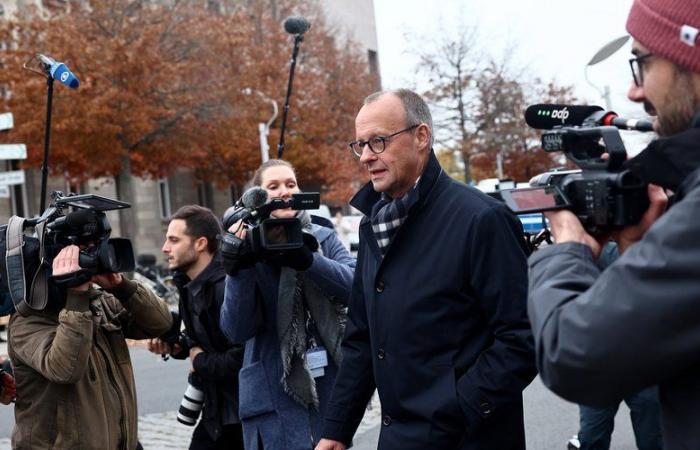
The only hope is the creation of a less fractured government that could pursue more coherent policies.
The collapse of Germany's ruling coalition is expected to weigh on economic activity in the already struggling European giant in the coming months, with the only hope being the formation of a less fractured government that could pursue more coherent policies.
The breakup of the governing coalition came at a critical time for Europe's largest economy, hours after the election of Donald Trump, raising the specter of a trade war with Germany's main trading partner.
Chancellor Olaf Scholz dismissed his Finance Minister on Wednesday, paving the way for early elections. The dismissal comes following months of wrangling within his three-party coalition that has further weakened confidence in an economy grappling with high energy costs and eroded competitiveness.
The world's third-largest economy has performed worse than the European Union (EU) average since 2021 and is expected to contract for the second consecutive year in 2024. This would be the worst performance of the G7 countries.
An economic impact
The collapse of the coalition could weigh on consumption and investment in the coming months as a third of German companies have already indicated in a recent survey that they plan to reduce their investments.
“Combined with Trump's victory, the level of confidence in the economy is likely to fall significantly and makes a contraction of the economy in the fourth quarter more likely”said Carsten Brzeski, global head of macroeconomics at ING.
“With elections taking place in March, it is hoped that the new government will end the economic paralysis and finally provide direction and certainty on economic policy.”added the economist.
Olaf Scholz plans to hold a parliamentary vote of confidence in his government on January 15, which could trigger snap elections by the end of March. Until then, he is expected to lead a minority government with the Social Democrats (SPD) and the Greens, relying on cobbled together parliamentary majorities to pass laws.
The Conservatives are on the rise
Currently, the conservative Christian Democrats (CDU) are leading the polls, but no majority appears for a purely center-right or center-left coalition.
“Once calm returns with a new government taking power on a new program, the impact will probably be positive,” said Holger Schmieding, chief economist at Berenberg.
In the short term, a likely delay in next year's budget means there will be no spending on new projects, although some such as increased aid for Ukraine could still be approved. The cabinet had agreed on the budget, which was to be approved by Parliament before the end of the year but this could now be pushed back until mid-2025.
Losing speed
The departure of Finance Minister Christian Lindner could ultimately make it possible to increase spending to support the flagging economy since the member of the Free Democratic Party (FDP) had opposed the chancellor's plan to suspend the brake on debt.
Olaf Scholz affirmed that Germany had sufficient room to spend without compromising the health of its finances, recalling that Berlin had the lowest debt of the major Western democracies.
Germany's public debt is estimated at 64% of its GDP in 2024, with a budget deficit of 1.75%, well below the 3% limit set by the European Union. France, meanwhile, expects its debt-to-GDP ratio to reach 113% this year, and Italy 135%. Alongside its proposed budget, the government also adopted a set of 49 measures in favor of economic activity which it says could generate additional growth of more than half a percentage point in 2025.
“The economy cannot wait”
The plans must be approved by parliament this year to be implemented, meaning the coalition government needed votes from opposition conservatives in the upper house, which represents Germany's 16 states. . Olaf Scholz said he would hold talks with CDU opposition leader Friedrich Merz to discuss possible cooperation on steps to boost Germany's economy and defense .
“Our economy cannot wait for new elections to be held”declared the chancellor.
The impending presidency of Donald Trump underlines the urgency of the situation: a report from the German economic institute IW revealed that in a scenario where the new American administration imposes customs duties of 20% on the European Union (EU), and the bloc takes retaliatory measures, the German economy, which depends on exports, could contract by 1.5% in 2027 and 2028.





